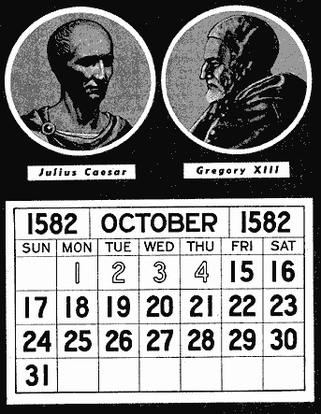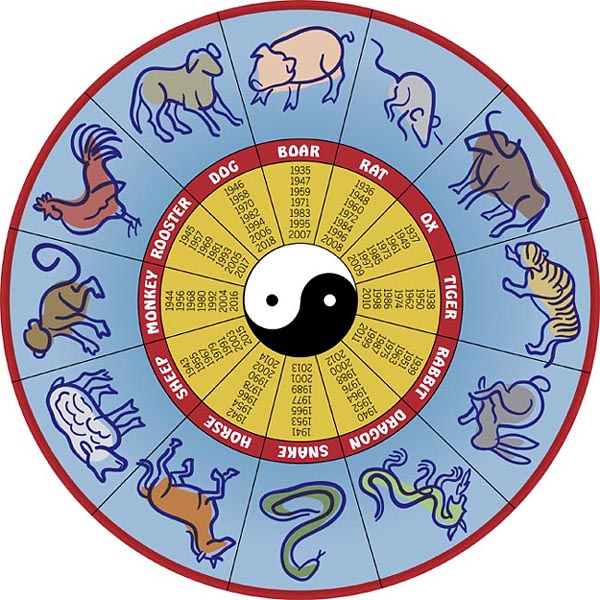Scramblin' thru... BC vs. AD
Time after time...
Different parts of the world adopted different ways to track time.
For example: * The Chinese began their calendar in 2637 BC, the reign of the Yellow Emperor. * Muslims began their calendar in 622 AD, when Muhammad fled from Mecca. * Christians began their calendar in 1 AD, when Jesus Christ was born in Bethlehem. Pope Gregory XIII's Gregorian calendar replaced Caesar's Julian calendar in 1582 AD. This calendar has been adopted by most of the world for official purposes. In the Gregorian calendar, years before Year 1 are designated BC for "Before Christ". Years after Year 1 are designated AD, an abbreviation for the Latin term Anno Domini, which means "In the year of the Lord". (AD does NOT mean "After Death".) AD years are counted forward from Year 1, whereas BC years are counted backward from Year 1. So, 500 BC came before 200 BC. There is no Year 0. The year after 1 BC was 1 AD. Keep in mind, people living during BC times didn’t label it that way. They didn't walk around saying, "Well, this is a fine day in the year 345 Before Christ." These dates were assigned to the events when old calendars were renumbered by new calendars. People who wish to avoid the reference to Christ use the term BCE (or Before the Common Era) to replace BC. To replace AD, they use CE (or Common Era). |
The Gregorian calendar is based on a 6th Century dating of Jesus Christ's birth, which has been proven to be off 4 to 8 years. Jesus Christ was born in 4 BC or 8 BC... not in 1 AD. That means Jesus was born 4-8 years before... Himself.
This means our calendar is behind 4-8 years! Thus, when it was the year 2000, it should have really been 2004 or 2008. This means all of you could add 4-8 years to your age. (But this won't hold up in court.) The year 2000 AD in the Christian calendar was actually the year 4697 AD in the Chinese calendar but only the year 1421 AD in the Islamic calendar.
When the Gregorian calendar took effect on October 4, 1582, people
awoke the next day to find it was now October 15th. This was done to correct a discrepancy between the Julian and Gregorian calendars. When this happened, however, many commoners revolted, thinking the government had "stolen 10 days of their lives". The transition was smoother in 1752 when Britain and her colonies (including what is now the U.S.) made the switch. For them, Wednesday, September 2nd in the Julian calendar dawned as Thursday, September 14th in the Gregorian. |









